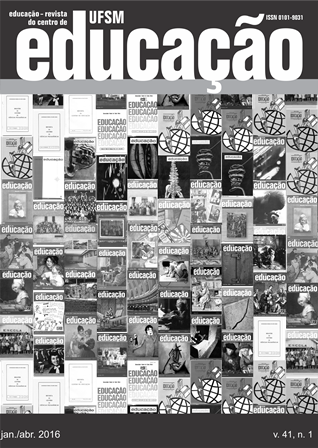Lights, camera, education: cinema in educational contexts
DOI:
https://doi.org/10.5902/1984644417378Keywords:
Cinema, Childhood, Psychology.Abstract
This article seeks an interlocution with the scientific production from the past ten years circumscribed to the following themes: cinema, childhood, education and psychology. This interlocution aims to illuminate the way in which professionals who work with children have articulated cinema as a strategy of intervention. Sixty-two articles were found. These articles only partially contemplate the investigated theme and none of them was about “film making” as a fundamental action in educational projects for childhood. Thus, two of these articles were selected for analysis, because they described interventions, and because they used cinema as a structuring aspect of group work. We concluded that cinema is still out of scene when it comes to its use as a trigger for emancipatory processes; as an element that engenders movements of denaturalization of socially given roles; and as an element that provokes questioning of our taken-for-granted assumptions.Downloads
Published
How to Cite
Issue
Section
License
Declaration of originality
We declare that all articles present in the journal Educação (UFSM) are originals and were not submitted for publishing on any other publication, as a whole or a fraction. We also declare that, after being published by Educação (UFSM), a paper will not be submitted to another journal within two years. After this time, our journal transfers the publishing rights to the authors, with a permit granted by the Editorial Council.
We also acknowledge that the originals’ submission to Educação (UFSM) implies on a transference of copyright for physical and digital publishing to the journal. In case of noncompliance, the violator will receive sanctions and penalties predicted by the Brazilian Copyright Protection Law (n. 9610, dated 19/02/98).
Attribution 4.0 International (CC BY 4.0)
This license lets others remix, transform, and build upon the material for any purpose, even commercially, and copy and redistribute the material in any medium or format.

This work is licensed under a Creative Commons Attribution 4.0 International (CC BY 4.0)






